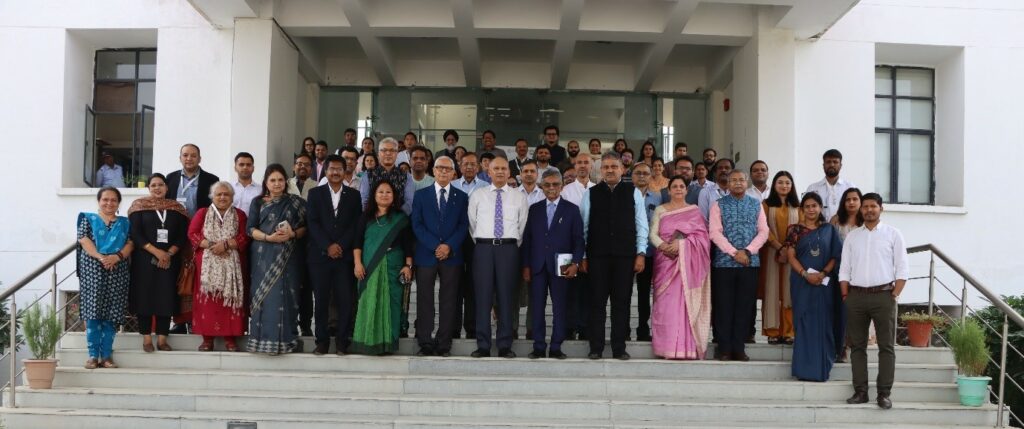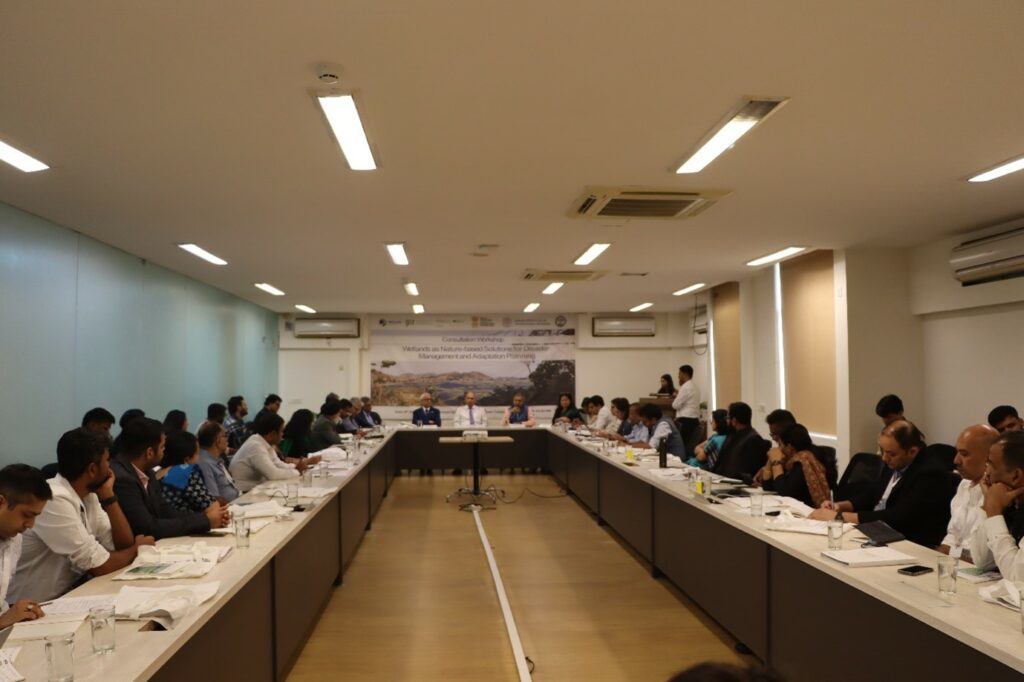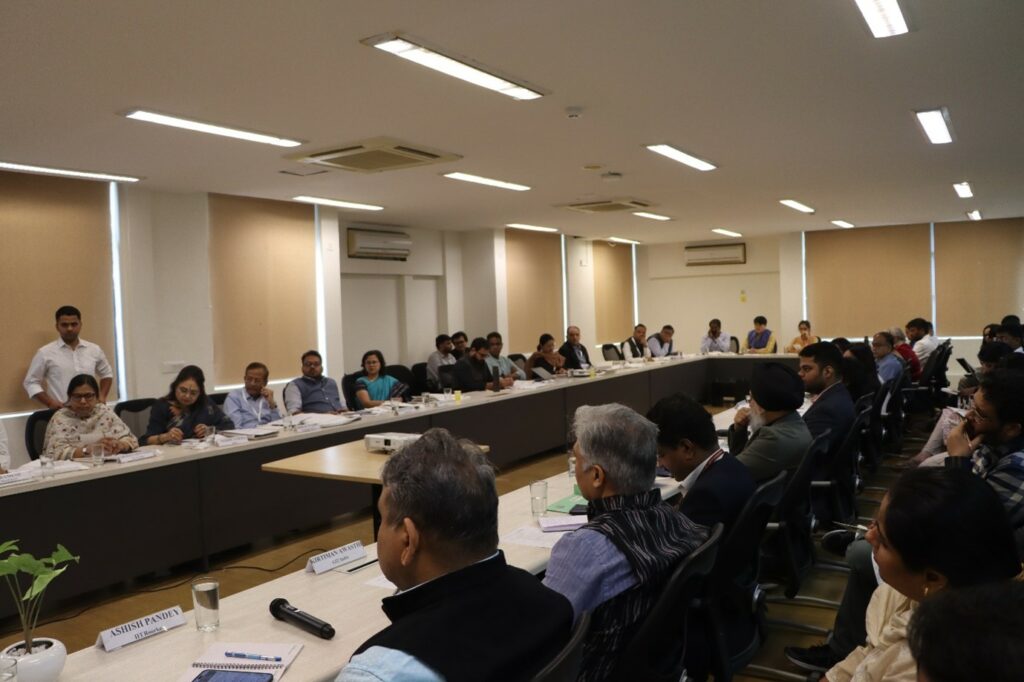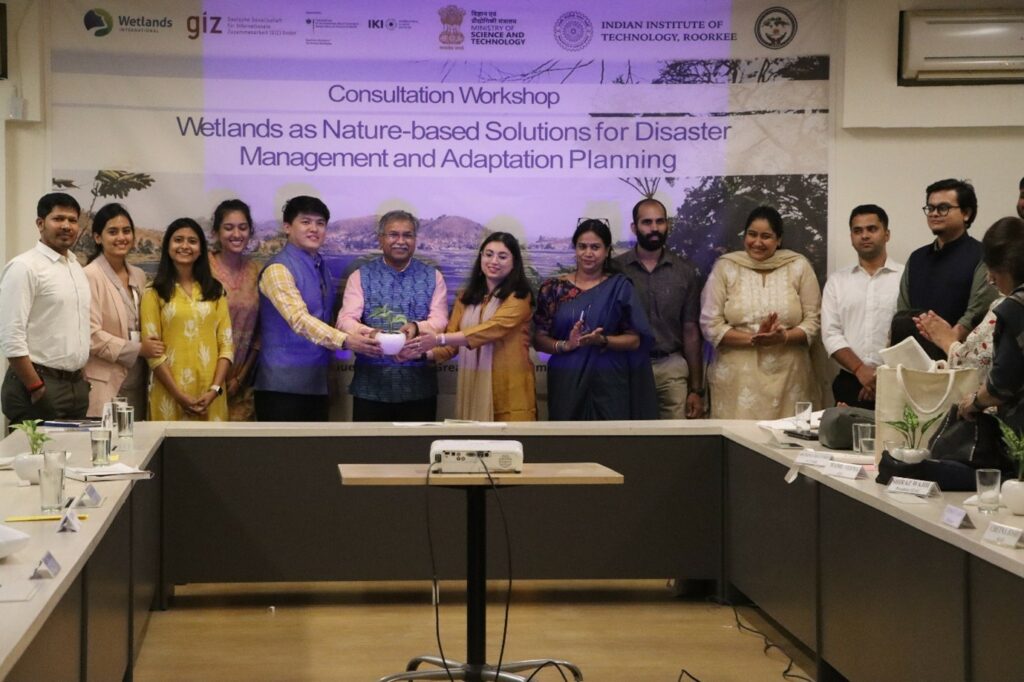
Harnessing Wetlands for Resilience: Nature-Based Solutions in Disaster Management & Climate Adaptation (Consultation Workshop – 8 November 2024)
-
Climate and disaster risks
-
Community resilience
Wetlands International South Asia and GIZ, in collaboration with ICARS (Integrated Centre for Adaptation, Resilience, and Sustainability), organised a workshop on ‘Wetlands as Nature-based Solutions in Disaster Management and Adaptation Planning’ on November 8, 2024, at the ICARS, IIT Roorkee Greater Noida campus.

The workshop brought together more than 50 participants, including researchers, policymakers, and disaster management professionals from various hazard-prone states of India. The workshop aimed to emphasize the role of wetlands in disaster risk reduction (DRR) and their integration into disaster management and climate adaptation plans.
The opening session was led by Prof. Anil K. Gupta, Director of ICARS, who highlighted the importance of shifting from traditional disaster response strategies to integrated frameworks that utilize wetlands as hybrid solutions. Dr. Ritesh Kumar, Director of Wetlands International South Asia, discussed how wetlands could modify water flow in landscapes to reduce the impact of floods and other disasters, advocating for their inclusion in disaster planning. Lt. Gen. Y. Dimri, Vice Chair of UP SDMA, emphasized the potential of community-driven initiatives like the Green UP Mission and Jal Mission to restore wetlands and strengthen local disaster management efforts. Prof. V. K. Sharma, Vice Chair of Sikkim SDMA, called for a more inclusive approach to wetland conservation, urging the integration of smaller, non-Ramsar wetlands into policy frameworks and emphasizing the importance of traditional practices and local participation in managing these vital ecosystems.

Contributions from experts underscored the pressing need to mainstream Nature-based Solutions (NbS) in DRR. Presentations included case studies on mangrove restoration in Maharashtra by Aryan Bajpai from CEEW, traditional water conservation practices in Rajasthan by Dr. Chetna Joshi, the integration of wetlands into Odisha’s district (Ganjan) disaster management plans by Harsh Ganapathi from WISA, and the role of high-altitude wetlands in mitigating flash floods and supporting water security. Dr. Prathna T.C. from WRI discussed urban applications of NbS, highlighting the role of participatory decision-making in designing resilient infrastructure, while Dr. Manish Rawat from IIT Roorkee presented a detailed analysis of wetland health in Bhoj, India, emphasizing the importance of landscape metrics in wetland conservation.
The workshop also highlighted the importance of policy and capacity-building efforts. Dr. M. Ramesh from MoEF&CC outlined initiatives such as the Amrit Dharohar program, which targets Ramsar sites for conservation and sustainable use. Dr. Akhilesh Gupta, Former Secretary of SERB, stressed the need for evidence-based policy planning to strengthen the convergence of NbS and DRR strategies. Discussions led by Dr. Madhu Verma from IORA Ecological Solutions emphasized the need to quantify the economic value of wetlands to unlock greater financial and policy support.

The event concluded with actionable recommendations to integrate wetlands into disaster management frameworks, enhance monitoring systems, and develop financial mechanisms to scale conservation efforts. The workshop provided a platform for collaborative dialogue and set the stage for advancing wetlands as a vital component in building disaster-resilient communities across India.

